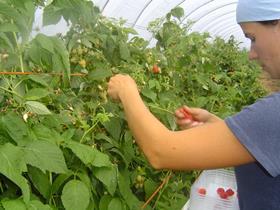
Almost half of recruiters in the food industry have reported a decrease in the supply of workers compared to last year, a report from the Association of Labour Providers has revealed.
The survey of labour provider businesses supplying the food and agriculture sectors, conducted between 17 and 28 July, highlighted major concerns among recruiters that they will be unable to source enough workers in the coming months, with the quality of workers also slipping.
Some 48 per cent of labour providers said they had already seen a decrease in labour supply, with half saying the quality of workers was worse than it was 12 months before. Only one in ten reported that quality had improved.
Looking ahead, 30 per cent do not expect to be able to source enough workers for the remainder of this year’s peak summer season – up from 21 per cent in February – and 45 per cent doubt they will be able to supply sufficient labour for the upcoming Christmas period.
Steps have already been taken by labour providers in the wake of last June’s Brexit referendum to tackle obstacles to recruitment. Most notably, these include the post-referendum devaluation of the pound; concerns among migrant workers that they will be forced to leave the UK, or not return for another season, after Brexit; and a feeling, especially among first-time recruits, that they are not welcome in Britain.
Over 40 per cent of the recruiters surveyed said their client businesses had been forced to increase wages to attract workers, while two in three labour providers have had to invest more money and resources in sourcing workers, thereby increasing the cost of labour supply.
Reacting to the report, the Association of Labour Providers’ CEO, David Camp, said: “The UK government should not wait for labour supply to the horticultural and food manufacturing sectors to fail with the devastating impact this will have on UK businesses.
“We are reassured that Defra is now convening a multi-stakeholder group to look at designing a model ‘Seasonal Agricultural Workers’ Permit Based Quota Scheme’ fit for the foreseeable future.
“We call upon Defra to ensure the validity of official data on which employment and immigration policies will be based before and after the UK leaves the EU and to be a leader and a champion for the whole UK food supply chain in terms of ensuring adequate labour supply”.
The results of the survey reinforce the findings of the April 2017 Environment Food and Rural Affairs Committee report “Feeding the nation: labour constraints”. It concluded that that “the current problem is in danger of becoming a crisis if urgent measures are not taken to fill the gaps in labour supply”.



